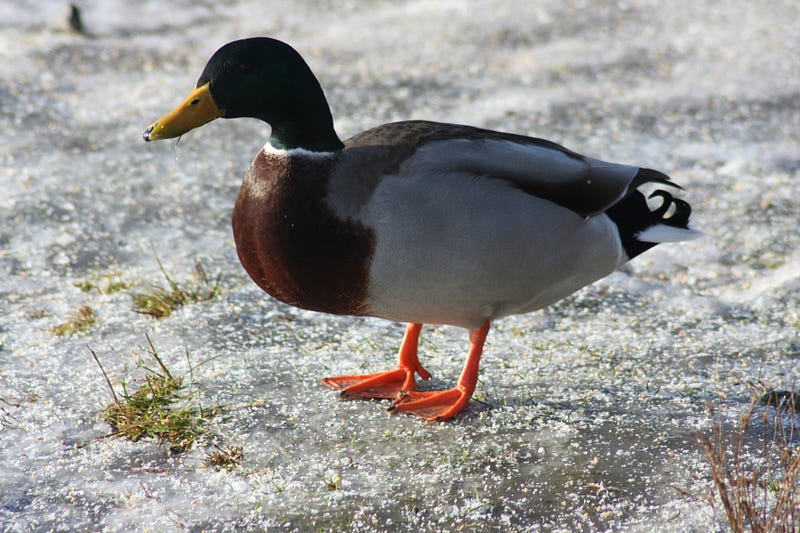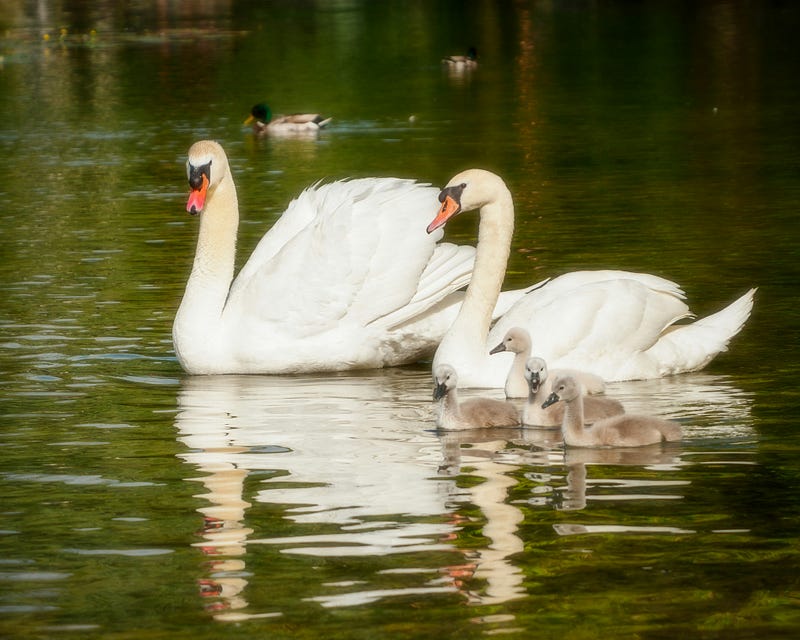Why Ducks Embrace Rain: Understanding Their Unique Behavior
Written on
Chapter 1: The Rainy Dilemma
Most creatures instinctively look for cover when the rain starts to fall. However, if you observe ducks and other waterfowl near bodies of water, you will notice they remain composed, either resting at the shoreline or gliding on the surface, seemingly unfazed by the downpour.
Why do ducks avoid seeking shelter? Are they not concerned about getting drenched? This curious behavior can be explained by their distinct physical characteristics and survival tactics.
Section 1.1: Waterproof Feathers – Nature's Shield
Waterfowl, such as ducks, possess specialized waterproof feathers that aid them in their aquatic lifestyle. For instance, mallard ducks have a unique oil gland located in their tails that produces a special oil. They regularly coat their feathers with this oil when not engaged in other activities.
This oil creates a protective layer over their feathers, much like a thin barrier that prevents water from soaking in. Consequently, when it rains, water droplets slide off their feathers without penetrating them.

Section 1.2: Insulating Down – Staying Warm
Beneath their outer feathers, ducks have a layer of down, similar to the material used in high-quality winter jackets. This down provides excellent insulation, allowing ducks to control their body temperature by fluffing up or compressing the layer. As long as this down remains dry, ducks can comfortably withstand the cold, even during rain.
In contrast, many waterbirds struggle to maintain warmth during the breeding season when their chicks lack feathers. Chicks are vulnerable to rain and can suffer from hypothermia. During this time, they often snuggle under their parents' feathers for warmth and protection.

Section 1.3: Energy Conservation – The Stillness Advantage
Remaining stationary in the rain also aids ducks in conserving energy. For wild animals, energy preservation is crucial, second only to the pursuit of food. Ducks dedicate a significant portion of their day to eating or resting.
Rain can complicate their foraging, as it often washes away food sources. In such situations, ducks benefit from taking a break to save energy, which can be especially vital during periods of food scarcity.
Section 1.4: Safety in Stillness – Avoiding Risks
Rainstorms can introduce dangerous elements such as strong winds, lightning, and thunder, which pose risks to ducks. On land, their movement is limited, and navigating during a storm could lead to injury. On water, high winds can create hazardous waves.
To mitigate these risks, standing still or resting on calm water is often the safest choice. However, during severe weather, ducks will seek refuge. Extreme conditions can cause them to lose body heat, prompting them to find shelter in trees, crevices, or caves until the storm passes.
Chapter 2: Insights into Duck Behavior
Through examining ducks' behavior during rain, we unveil the intricacies of their unique adaptations and survival strategies. This knowledge not only enhances our understanding of biodiversity and ecological balance but also inspires curiosity about the natural world.
This video, titled "Duck Hunting- THIS is what RAIN does to ducks!", delves into how rain impacts duck behavior and their remarkable adaptations to withstand wet conditions.
In the video "Duck Hunting- RAIN changes the GAME", we explore the challenges ducks face during rainfall and how their strategies evolve in response to changing weather patterns.